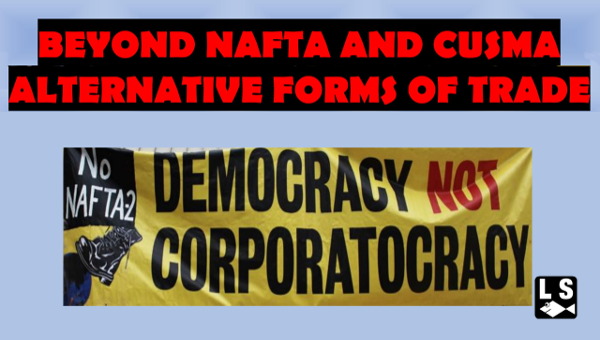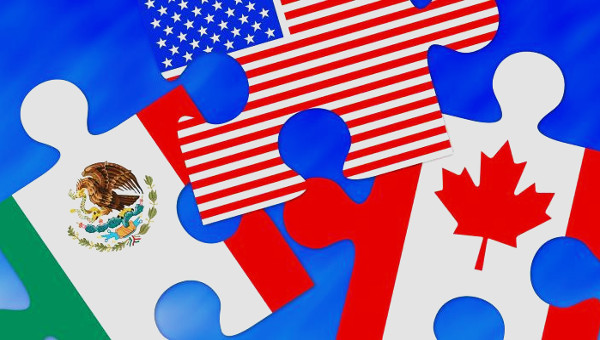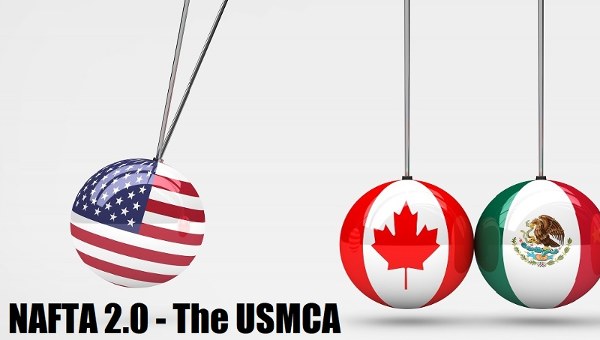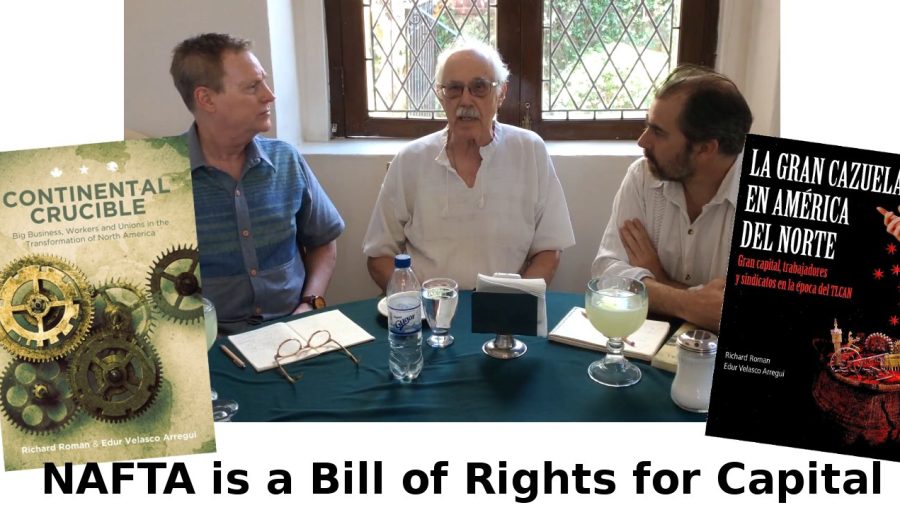Trade Wars: NAFTA, China and the World Market
Global imbalances are once again in the news on a daily basis, as the American current account grows, with trade surpluses in other zones and capital and credit flows growing … Watch video »
Global imbalances are once again in the news on a daily basis, as the American current account grows, with trade surpluses in other zones and capital and credit flows growing in tandem. In response, U.S. President Donald Trump slaps tariffs on imports from many of the US’s traditional allies in North America and Europe, condemning their leaders for unfair treatment. As well, Trump imposes high tariffs on Chinese products and other restrictions on trade relations with China. China responds in turn with tariffs on U.S. goods, and redoubles its efforts to forge a new trade zone with its Belt and Road Initiative and a new trade push in Africa and Latin America. And after Trump declares NAFTA to be ‘the worst deal’ in American history (and the worst deal ever signed ‘by any country’) as part of his ‘America First’ agenda, he negotiates the re-worked USMCA, with its strengthening of the rules of origin and military exemption clauses, while also forming new mechanisms for controlling Canadian and Mexican economic policy autonomy.
How do we assess these trade conflicts – a burgeoning trade war in the eyes of some? How to make sense of the present moment? Was the push to renegotiate NAFTA only about Trump playing to his base? Was Trump reacting to a decline in the American empire? Was it about moving away from multilateral agreements to bilateral ones where U.S. strength weighs heavier? Is the narrowing of options that the renegotiation of NAFTA exposed just about free trade agreements, or does it point to a more general characteristic of capitalism today?
For many on the left, this moment is to be understood as reflecting some kind of fundamental crisis in neoliberal capitalism. They view the anti-free trade rhetoric – especially that coming from the new American president and his extreme advisors – as reflecting the economic decline of the U.S. empire, the retreat of its state from global economic responsibilities, and the possible collapse of globalization itself. Yet the underlying dynamics of internationally integrated finance, production, and multinational corporate trade in fact still continue, with working classes everywhere showing all too little capacity to undermine their operation.
China may more confidently assert its growing weight within the global order, but it clearly has little capacity, especially with its own internal contradictions to deal with, to assume the U.S. role and responsibilities for overseeing global capitalism. Globalization may briefly slow down and suffer a loss of legitimacy, but it is the historical form that capitalism now embodies and will remain the only game in town absent widespread political challenges to capitalism itself.
Introduction by Greg Albo. Presentations by:
- Stephen Maher, Socialist Register Assistant Editor.
- Anna Zalik, Faculty of Environmental Studies, York University.
- David Bush, RankandFile.ca and Fight for $15 organizer.
Recorded in Toronto, 9 December 2018.





